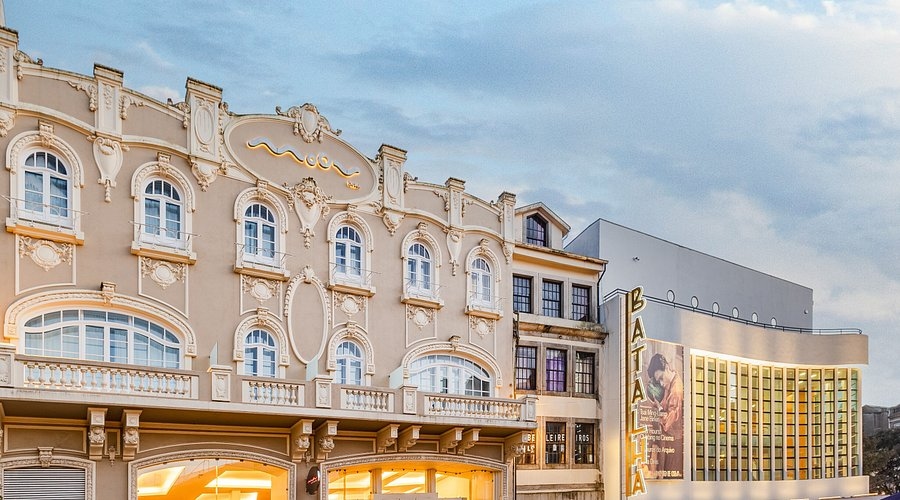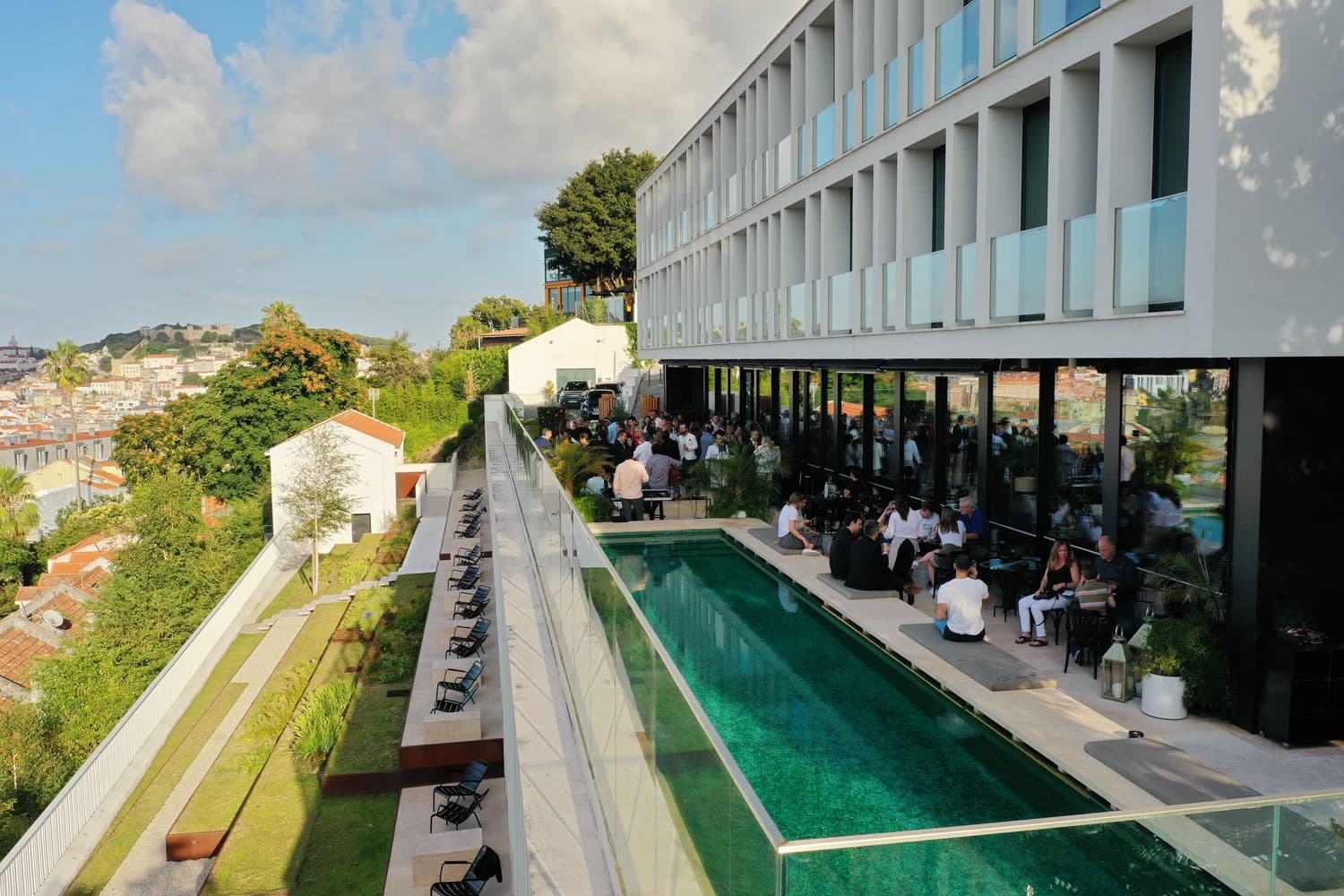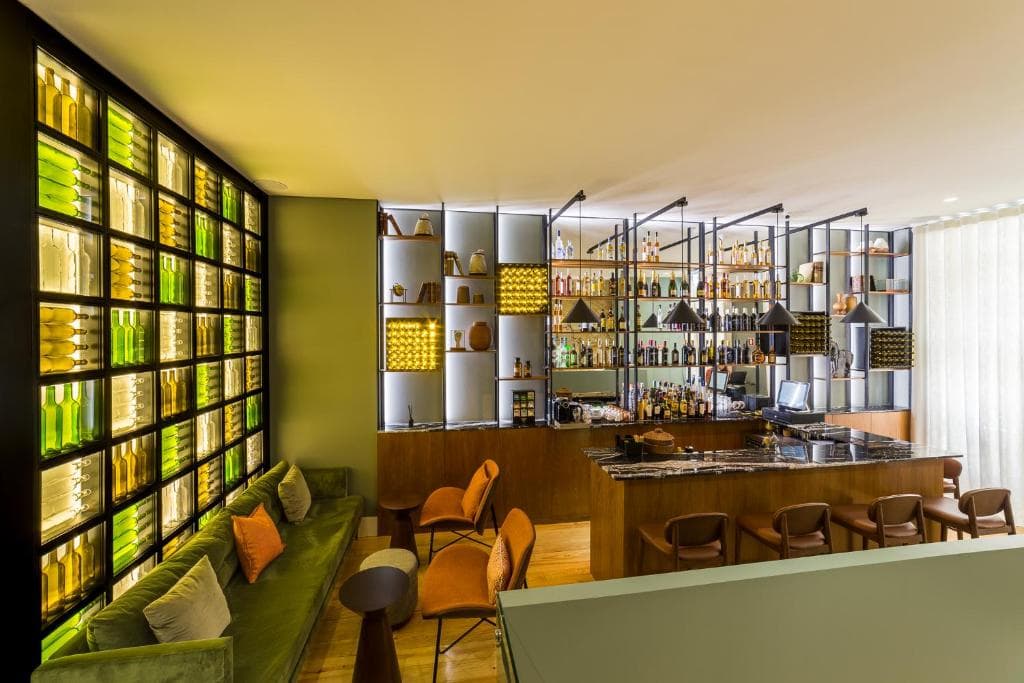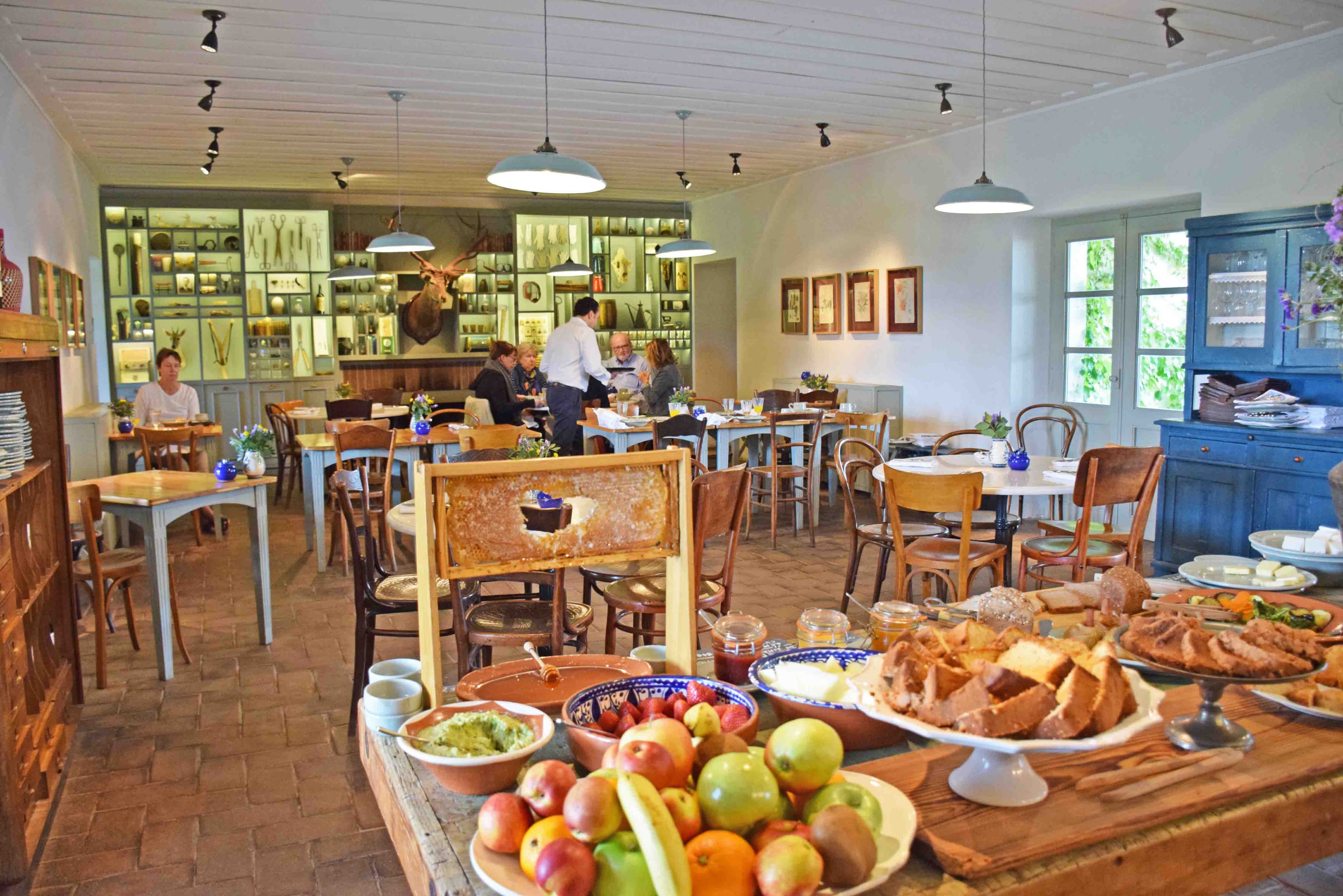
There is something unique about the way Portugal reinvents itself without ever losing its essence.
While other countries seek to impress through spectacle, Portugal prefers to enchant through sincerity.
In the contemporary hotels that have emerged from north to south, one senses a delicate harmony between innovation and memory, between architectural boldness and artisanal subtlety.
These are spaces where every stone, every piece of furniture, every ray of light tells a fragment of the land, as if design itself had become a new language to express modern Portugal.
These places are no longer mere accommodations: they are living stories, tangible expressions of a culture that understands hospitality as a form of art.
Spending a night in a contemporary Portuguese hotel is often much more than a stay — it is a cultural experience, a dialogue between past and present, tradition and avant-garde.
Architecture as an Extension of the Landscape
One of the most fascinating aspects of this new hospitality scene is how architecture blends seamlessly into the landscape instead of dominating it.
Rather than imposing a striking signature, Portuguese architects prefer to work with the terrain, the light, and the materials of the region.
From the coast of Comporta to the hills of the Douro Valley, architecture becomes almost silent — organic, understated, in dialogue with nature.
Projects like Sublime Comporta, Casa do Rio, or São Lourenço do Barrocal embody this philosophy perfectly: buildings with pure lines, made of wood, stone, and lime, that seem to have always belonged to their surroundings.
Their elegance comes from discretion.
They express the very essence of the country — a Portugal that lives in harmony with its land, respects it, and lets it breathe.
This approach also reflects a particular relationship with time.
Here, the goal is not to dazzle at first glance, but to move over time.
It is design that unfolds gently, a form of luxury that whispers rather than shouts.
When Design Becomes a Language of Identity
In these hotels, design is never ornamental.
Every object, every texture, every material is chosen not to decorate, but to tell a story.
Creators draw inspiration from ancestral gestures, regional crafts, and the symbols of Portuguese daily life, shaping an aesthetic that is modern yet emotionally charged.
Azulejos, for instance, are no longer merely decorative elements — they become abstract motifs, living surfaces that capture light.
Wool rugs woven in the Alentejo, ceramics from Aveiro, and carved wooden beams from the north are reborn through the hands of contemporary designers.
Together, they form a coherent visual language that bridges tradition and minimalism.
Hotels such as Dá Licença in Estremoz, Memmo Alfama in Lisbon, or Casa Mãe in Lagos embody this new Portuguese elegance: simple, serene, soulful, and deeply meaningful.
Their interiors breathe balance and warmth, with that meditative slowness so characteristic of the Portuguese spirit.
Craftsmanship as the Soul of Renewal
Portuguese design would not have the same depth without its artisans.
They are the true keepers of memory, transforming gesture into living heritage.
In many hotels, collaboration with local workshops has become essential.
Light fixtures are hand-blown, furniture crafted by traditional carpenters, and textiles dyed with natural pigments.
These objects are not there just for beauty — they embody an ethic: that of the handmade, the local, the sustainable.
It is design that values time, patience, and precision.
Above all, it reflects a country that trusts its roots to build its future.
The result is often moving: a room where every detail bears the trace of human touch becomes a space of emotion, inhabited by the quiet beauty of authenticity.
A Sensory Travel Experience
New Portuguese hotels do not simply offer a backdrop — they create a complete, almost spiritual experience.
Architecture, light, sound, and scent are all part of an atmosphere of presence.
Materials breathe, spaces are open to air and light, and visitors feel immediately enveloped by a rare sense of calm.
At Areias do Seixo, the sea literally enters the rooms through reflections and the sound of the waves.
At Santa Clara 1728, in Lisbon, pale stone, wood, and sunlight form a quiet symphony of harmony.
Here, luxury is not expressed through excess but through sincerity: a comfortable chair, an open window onto nature, a breakfast made with local ingredients.
It’s what the Portuguese call o conforto da alma — the comfort of the soul.
Portugal as a Laboratory of Sustainable and Sensitive Luxury
This new generation of hotels represents a vision of luxury profoundly different from what dominates elsewhere.
There is no ostentation, no theatricality.
Portuguese luxury is slow, local, and human.
It values short supply chains, bioclimatic architecture, heritage restoration, and the transmission of knowledge.
Each project becomes an act of cultural and environmental responsibility.
And perhaps that is the secret of Portuguese charm: a calm, conscious modernity that rejects artifice and celebrates authenticity.
In a world that rushes and clamors, these hotels offer silence, time, and meaning.
Conclusion
Contemporary Portuguese hotels are far more than places to stay — they are living expressions of culture and sensibility.
Through them, the country shows that it is possible to reconcile aesthetics with authenticity, design with memory, innovation with serenity.
In these spaces, both grounded and open to the world, one understands that Portuguese design is not a trend but an attitude — a way of being that moves forward without forgetting, creates without erasing, and welcomes by telling a story.
And perhaps that is why Portuguese hospitality touches people so deeply: because it does not seek to impress, but to move.
It is, like the country itself, genuine, luminous, and profoundly human.
Share this article
Suggested articles

Portugal Through Its Boutique Hotels: Intimate Journeys and Stories to Tell
To discover Portugal through its boutique hotels is to embark on a journey designed on a human scale, an experience where every place tells a story and every room seems to have a soul. Far from tourist resorts and impersonal chains, these establishments cultivate a unique charm, an atmosphere built on calm, beauty, and attention to detail.

Cultural Fusion: When a Hotel Becomes an Art Gallery or Experimental Space
There is in Portugal a creative energy that never ceases to surprise — a rare ability to merge the old and the contemporary, tradition and modernity, without ever losing authenticity. In a country where culture has always been a lived experience rather than a concept, hotels are now becoming far more than places to stay: they are galleries, studios, and at times, living laboratories where art and life intertwine.

When Hospitality Becomes Heritage: The Historic Hotels of Portugal
Portugal is a country that doesn’t just preserve its heritage: it inhabits it, reinvents it, and shares it with its visitors. Across the nation, historic buildings have been given new life as hotels, where the charm of the past meets the comfort of the present. Sleeping in a former convent or royal palace here isn’t an unattainable luxury, but a way to experience Portuguese history from within.

Nature, Terroir and Hospitality: The Rural and Authentic Adventure in Portugal
While Portugal’s cities charm visitors with their energy and history, it is in the countryside that the country reveals its truest soul. Far from the noise of the metropolises, another Portugal unfolds — the one of the Douro Valley’s slopes, the golden plains of the Alentejo, the mountains of Serra da Estrela, and the lush orchards of Minho. Here, luxury is not measured in extravagance, but in essence. And from this philosophy has emerged a new generation of rural hotels that bring together nature, terroir, and the art of living well.


